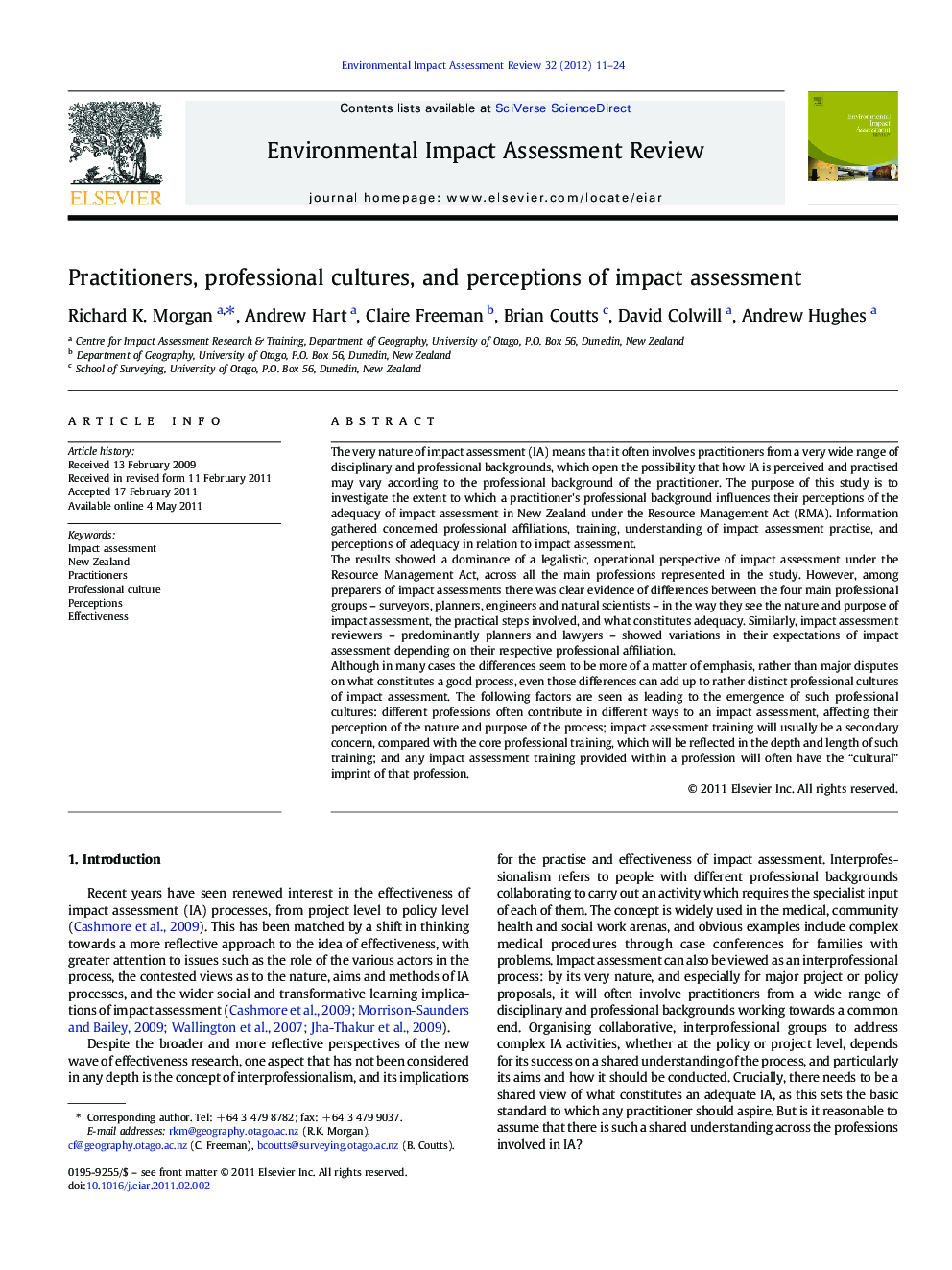| کد مقاله | کد نشریه | سال انتشار | مقاله انگلیسی | نسخه تمام متن |
|---|---|---|---|---|
| 1052934 | 946513 | 2012 | 14 صفحه PDF | دانلود رایگان |

The very nature of impact assessment (IA) means that it often involves practitioners from a very wide range of disciplinary and professional backgrounds, which open the possibility that how IA is perceived and practised may vary according to the professional background of the practitioner. The purpose of this study is to investigate the extent to which a practitioner's professional background influences their perceptions of the adequacy of impact assessment in New Zealand under the Resource Management Act (RMA). Information gathered concerned professional affiliations, training, understanding of impact assessment practise, and perceptions of adequacy in relation to impact assessment.The results showed a dominance of a legalistic, operational perspective of impact assessment under the Resource Management Act, across all the main professions represented in the study. However, among preparers of impact assessments there was clear evidence of differences between the four main professional groups – surveyors, planners, engineers and natural scientists – in the way they see the nature and purpose of impact assessment, the practical steps involved, and what constitutes adequacy. Similarly, impact assessment reviewers – predominantly planners and lawyers – showed variations in their expectations of impact assessment depending on their respective professional affiliation.Although in many cases the differences seem to be more of a matter of emphasis, rather than major disputes on what constitutes a good process, even those differences can add up to rather distinct professional cultures of impact assessment. The following factors are seen as leading to the emergence of such professional cultures: different professions often contribute in different ways to an impact assessment, affecting their perception of the nature and purpose of the process; impact assessment training will usually be a secondary concern, compared with the core professional training, which will be reflected in the depth and length of such training; and any impact assessment training provided within a profession will often have the “cultural” imprint of that profession.
Journal: Environmental Impact Assessment Review - Volume 32, Issue 1, January 2012, Pages 11–24